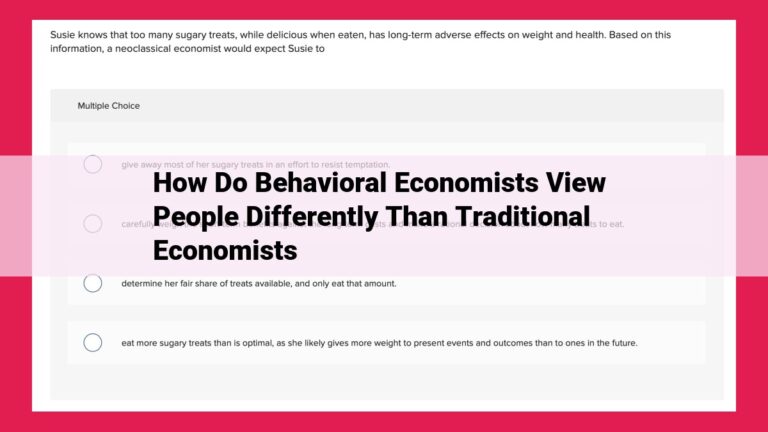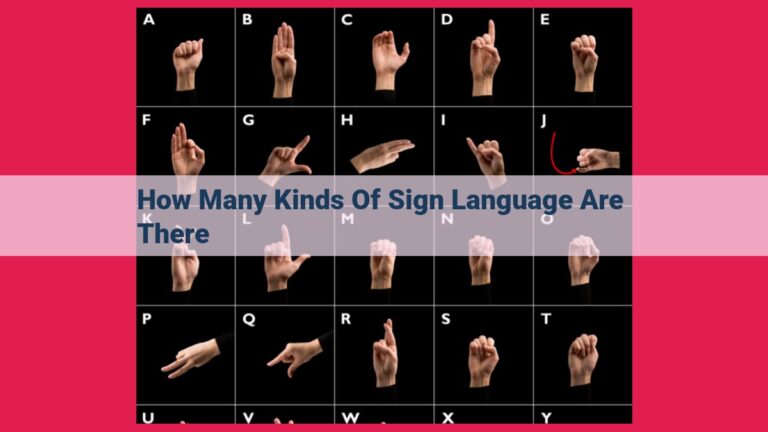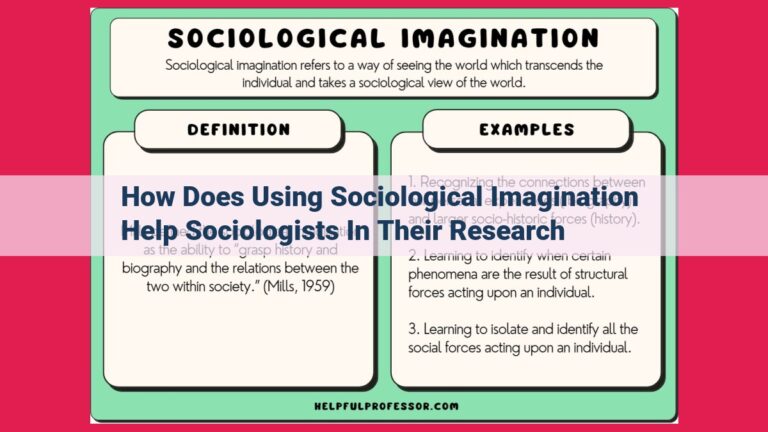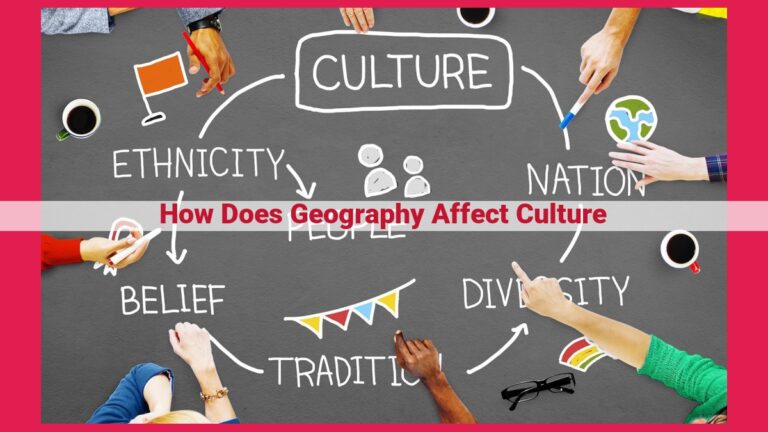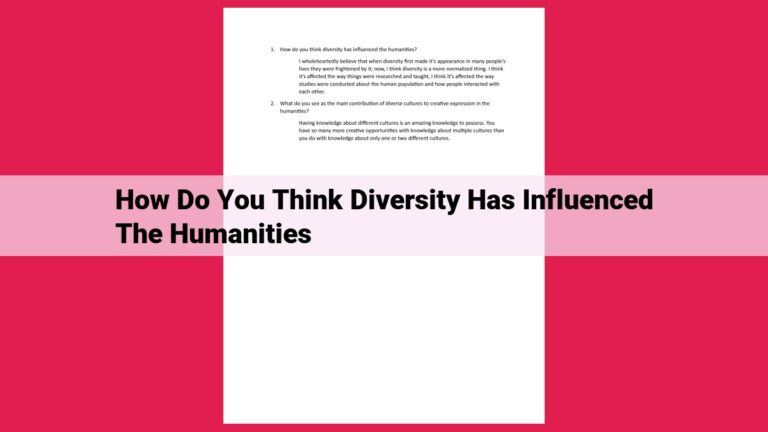The Profound Impact Of Race On Romantic Relationships: Understanding Barriers And Embracing Diverse Love
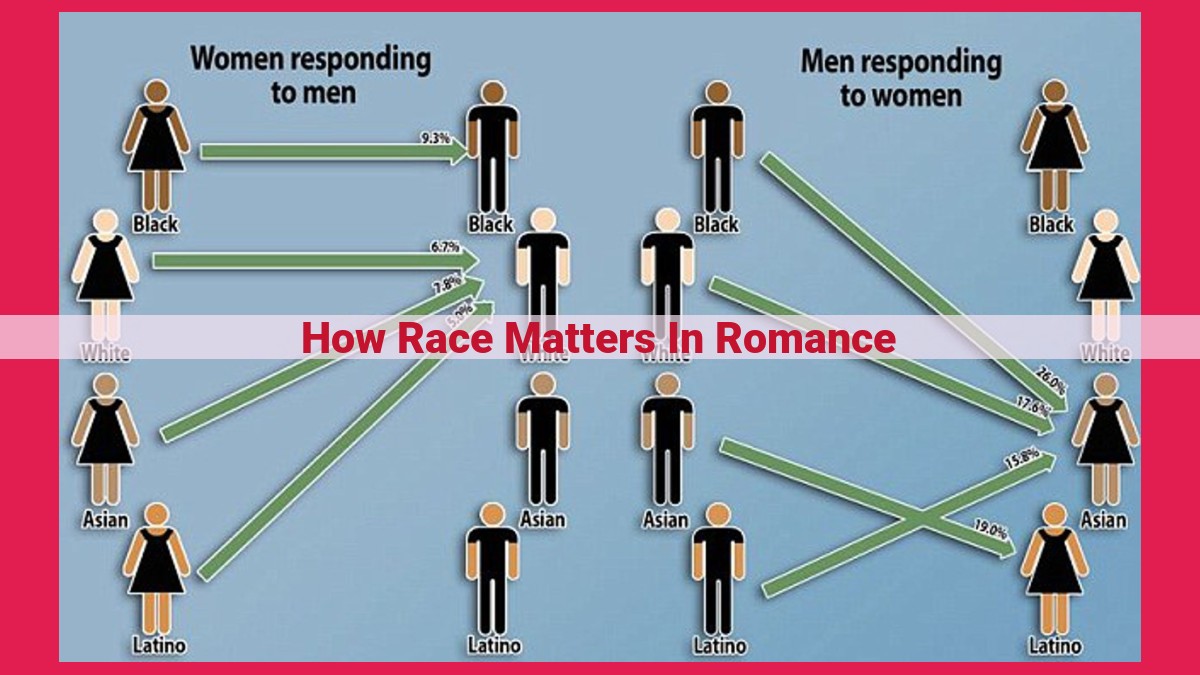
Race profoundly impacts romantic relationships, shaping identity, experiences, and opportunities. Racial stereotypes, discrimination, and microaggressions create barriers to love and connection. Interracial couples navigate cultural differences, while racial triangulation and fetishism manipulatively exploit racial identities. Internalized racism can sabotage relationships, while tokenism superficializes inclusion. Understanding race allows us to dismantle biases, foster respect, and embrace the richness of diverse love connections.
Race Matters in Romance: Unveiling the Significance
Love knows no boundaries, or so the saying goes. But in the real world, race often plays a significant role in the dynamics of romantic relationships. Understanding the complexities of race is crucial for fostering healthy and equitable love connections.
The Importance of Race
Race is not just a physical trait; it’s a social construct that shapes our experiences, identities, and opportunities. In romantic relationships, race can influence factors such as attraction, compatibility, and the challenges couples face.
Racialization: Identity and Context
- Racialization is the process by which people are categorized into racial groups based on physical characteristics.
- This process creates racial identities and determines how individuals are treated and perceived in society.
- Race can also shape our expectations, biases, and experiences in romantic relationships.
Racial Stereotypes: Biases and Prejudice
- Racial stereotypes are oversimplified, often negative, generalizations about people based on their race.
- These stereotypes can lead to prejudice, an unjustifiable attitude toward a person based on their race.
- Stereotypes and prejudice can create barriers to romantic opportunities and hinder healthy interactions.
Racial Discrimination: Barriers to Love and Connection
- Racial discrimination is the unfair treatment of individuals based on their race.
- This can manifest in overt forms, such as segregation, or subtle forms, such as microaggressions.
- Discrimination can create obstacles for interracial relationships and damage the self-esteem of individuals who experience it.
Race is an undeniable factor in romantic relationships. By understanding its significance, we can challenge stereotypes and prejudices, promote inclusivity, and foster healthy connections that transcend racial boundaries. Only then can we create a truly equitable and loving society where race does not hinder the pursuit of love.
Racialization: Defining Identity and Social Context
- Define racialization and explain how it shapes racial identity and experiences.
Racialization: Defining Identity and Social Context
In the tapestry of human existence, race stands as a complex and multifaceted construct. It’s not merely a physical attribute, but a powerful social force that shapes our identity, experiences, and interactions. Racialization is the process by which individuals are assigned to racial categories based on perceived physical characteristics. This seemingly arbitrary classification has profound consequences, molding not only our self-perception but also how society treats us.
Racialization shapes racial identity, creating a sense of belonging and shared experiences. It can foster a sense of community and pride, but it can also lead to division and conflict. Being labeled a certain race can influence our access to opportunities, our social interactions, and even our romantic relationships.
The social context in which we live plays a significant role in racialization. Societal norms, values, and stereotypes can reinforce racial boundaries and limit our choices. For example, in many cultures, interracial relationships may be met with disapproval or even hostility. These external pressures can shape our own beliefs and behaviors, influencing who we choose to date and potentially limiting our ability to find true love.
Racialization is an ongoing process, constantly evolving and adapting to changing social and cultural landscapes. By understanding its significance, we can challenge stereotypes, break down barriers, and foster a more inclusive and just society. Ultimately, race matters in romance because it’s an integral part of our identity and our lived experiences. Recognizing and addressing racial dynamics allows us to create more meaningful and equitable relationships, regardless of our differences.
Racial Stereotypes: Unveiling Biases and Prejudice
When it comes to matters of the heart, it’s undeniable that race often plays a role. Unfortunately, harmful racial stereotypes persist, influencing our perceptions and limiting romantic opportunities for many. In this section, we’ll explore the damaging impact of these stereotypes on the quest for love and connection.
Unveiling Common Racial Stereotypes
Racial stereotypes are oversimplified and inaccurate beliefs about individuals based solely on their race or ethnicity. These preconceived notions are often based on historical biases and prejudices that have been perpetuated through society. Some of the most prevalent racial stereotypes include:
- Black people: Often portrayed as athletic, aggressive, and sexually promiscuous.
- Asian people: Frequently stereotyped as intelligent, hardworking, and reserved.
- Latino people: Commonly depicted as passionate, loud, and family-oriented.
- White people: Typically represented as privileged, superior, and entitled.
Impact on Romantic Opportunities
These harmful stereotypes can have a profound impact on romantic relationships. For example, Black women may face assumptions about their promiscuity, leading to negative perceptions and reduced dating opportunities. Asian men might struggle to be seen as romantically desirable due to stereotypes that depict them as lacking masculinity. Latino individuals may encounter expectations of being overly emotional or clingy, hindering their chances of finding compatible partners.
Challenging Stereotypes and Promoting Inclusivity
It’s crucial to challenge these stereotypes and promote a more inclusive environment where individuals can be valued for their unique qualities, regardless of race. To foster inclusivity in romantic relationships, it’s essential to:
- Educate oneself: Learn about the history and impact of racial stereotypes.
- Be open-minded: Approach interactions with people of different races without preconceptions.
- Value diversity: Recognize and appreciate the richness that diversity brings to the dating pool.
- Speak up against racism: Challenge racist comments and behaviors when you witness them.
By confronting stereotypes and embracing inclusivity, we can create a society where everyone has an equal chance at finding love and connection, regardless of the color of their skin.
Racial Discrimination: Barriers to Love and Connection
Introduction
Race remains a polarizing factor in the realm of romance, overshadowing and hindering the pursuit of genuine connections. Racial discrimination casts a long shadow on interracial relationships, disrupting the harmony and love that should be their foundation.
Overt Discrimination
In its most blatant form, racial discrimination manifests as impediments to interracial marriage. Laws against interracial unions existed in the United States until as recently as 1967, and similar barriers persist in some parts of the world today. These obstacles not only prevent couples from legalizing their relationship but also reinforce societal disapproval.
Subtle Discrimination
Microaggressions are often used to perpetuate subtle forms of discrimination. These seemingly innocuous remarks or behaviors, such as assuming a person of color has a lower level of education or wealth, can have a profound impact on self-esteem and romantic opportunities. For instance, a Black woman may face skepticism or outright hostility when dating a White man, subtly conveying that their relationship is “unnatural” or “problematic.”
Consequences on Relationships
Racial discrimination can erode trust and intimacy in romantic relationships. Disapproval from family and friends, biased treatment by institutions, and societal stigma can create a constant undercurrent of stress and anxiety. The fear of being judged or marginalized can lead to partners self-censoring their expressions of affection or restricting their social interactions. The constant pressure of discrimination can strain the bonds of love and connection.
Challenging the Barriers
Overcoming the barriers posed by racial discrimination requires courage, resilience, and support. Couples must communicate openly about their experiences, validating each other’s feelings and acknowledging the challenges they face. Seeking support from loved ones, joining support groups, and educating the community can help to create a more inclusive environment.
In the face of adversity, love often prevails. Interracial relationships can thrive when couples reject societal norms, embrace their differences, and challenge stereotypes. By standing together and demanding respect, couples can pave the way for a future where race is no longer a barrier to love and connection.
Racial Microaggressions: Unintentional Yet Damaging
In the intricate tapestry of romantic relationships, race often weaves threads that shape the fabric of love and connection. Racial microaggressions are subtle, often unintentional slights that can accumulate over time, eroding self-esteem and poisoning the well of romantic interactions.
Microaggressions can range from seemingly innocuous comments to more overt expressions of bias. They can target individuals based on their skin color, facial features, or cultural background. While often uttered without malicious intent, these subtle jabs chip away at a person’s sense of belonging and self-worth.
For example, a well-meaning friend might innocently tell a Black person that they “speak so well,” implying that they’re not expected to be articulate. Such comments reinforce stereotypes and suggest that the person’s intelligence is an exception to the norm.
In romantic relationships, microaggressions can manifest in various ways. A partner might question their significant other’s cultural practices or express surprise at their ability to succeed in a particular field. These seemingly harmless remarks can send the message that the person’s identity and experiences are not fully valued or understood.
The effects of racial microaggressions can be profound. They can lead to feelings of isolation, anxiety, and self-doubt. In romantic relationships, they can erode trust and create a barrier to emotional intimacy. Individuals who experience microaggressions may become guarded, withdraw from their partners, or even sabotage the relationship as a way of self-protection.
Addressing racial microaggressions is crucial for fostering healthy and equitable romantic relationships. By acknowledging the existence of these subtle yet damaging slights, we can work towards creating a more inclusive and supportive environment for all. Active listening, empathy, and a willingness to learn are essential for breaking down the barriers that microaggressions create.
Internalized Racism: The Self-Sabotaging Voice
- Describe internalized racism and the challenges it presents in finding healthy relationships.
Internalized Racism: The Insidious Voice of Self-Sabotage
In the intertwining world of love and identity, racial biases can seep into our hearts and minds, creating a silent yet treacherous force that undermines our ability to form healthy relationships. This force is known as internalized racism, a subconscious belief system that perpetuates stereotypes and negative views of our own racial group.
Internalized racism takes on many insidious forms. It can manifest as a lack of confidence in our worthiness as romantic partners, leading us to believe that we are inherently less desirable or acceptable due to our race. It can also manifest as a self-critical voice that tells us we are “too ethnic” or “not ethnic enough,” perpetuating the myth that our cultural identity is incompatible with true love.
The impact of internalized racism on relationships can be devastating. It can lead us to sabotage our own chances at happiness by avoiding relationships with people of other races or by settling for partners who reinforce our negative beliefs. It can also create a cycle of insecurity and distrust, where we constantly fear rejection or judgment based on our race.
Breaking free from the grip of internalized racism requires self-awareness and a willingness to challenge our own beliefs. It involves recognizing the ways in which we have internalized society’s biases and actively working to dismantle them. By embracing self-love and celebrating our cultural heritage, we can break the cycle of self-sabotage and open ourselves up to healthy, fulfilling relationships that transcend racial barriers.
Interracial Relationships: Embracing Cultural Nuances
In the tapestry of love, race often weaves a thread, adding both beauty and complexity to relationships. Interracial couples embark on a journey where they navigate unique experiences and challenges shaped by their differing cultural backgrounds.
One significant aspect is communication. Language barriers, unspoken cultural cues, and varying communication styles can pose obstacles. However, when couples embrace these differences with patience and empathy, they find a common ground that fosters understanding.
Values and beliefs also play a crucial role. Interracial relationships can bring into focus differing perspectives on family, marriage, and social expectations. By engaging in open and respectful dialogue, couples learn to appreciate and incorporate each other’s values into their shared life.
Navigating social dynamics can be another layer of complexity. External perceptions, societal biases, and even family pressures can impact interracial relationships. By building a strong support system and seeking understanding from those around them, couples can create a safe and inclusive environment within which their love can flourish.
Cultural differences can also bring a wealth of enrichment. Interracial couples have the opportunity to learn from each other’s perspectives, broaden their cultural horizons, and appreciate the beauty of diversity. By embracing the differences that make them unique, they create a richer and more vibrant relationship that is a testament to the power of love that transcends boundaries.
Racial Triangulation: Dividing and Conquering in Relationships
In the intricate tapestry of human relationships, race can often serve as a fault line, dividing loved ones and undermining connections. Racial triangulation, a manipulative tactic rooted in prejudice, emerges as a particularly insidious force, damaging the delicate balance of love and trust.
What is Racial Triangulation?
Racial triangulation occurs when an individual intentionally or unintentionally uses race as a wedge to create conflict or division between two other people. It involves pitting one person of color against another, either explicitly or implicitly, to assert power and control.
For instance, a dominant partner may use racial slurs or make thinly veiled references to race to belittle their partner, creating a sense of isolation and inferiority. Alternatively, they may compare their partner unfavorably to someone of another race, emphasizing perceived differences to undermine their self-esteem.
Damaging Effects on Relationships
The impact of racial triangulation on relationships can be devastating. Erosion of Trust: When one partner uses race as a weapon, trust is irrevocably broken. The victimized partner feels betrayed and unsafe, questioning the authenticity of their relationship.
Self-Doubt and Isolation: Racial triangulation can lead to intense feelings of self-doubt and isolation. The targeted partner may begin to internalize the negative messages, believing that they are unworthy or inadequate because of their race.
Division and Control: Racial triangulation serves as a divisive force, driving a wedge between partners and creating a power imbalance. The perpetrator gains control by pitting them against each other, diminishing their ability to unite as a team.
Overcoming Racial Triangulation
Recognizing and addressing racial triangulation is crucial for maintaining healthy relationships. Communication: Open and honest communication is essential. The victimized partner should assert their boundaries and make it clear that racial triangulation is unacceptable.
Supportive Network: Seeking support from trusted friends, family, or a therapist can provide a safe and understanding space to process the pain and develop coping mechanisms.
Education and Awareness: Educating oneself on racial issues and the dynamics of racial triangulation can help cultivate empathy and understanding. This empowers individuals to recognize and challenge such behavior.
Racial triangulation is a manipulative and harmful tactic that has no place in healthy relationships. By recognizing the signs, addressing it directly, and seeking support, individuals can protect themselves from its damaging effects and foster connections that are built on love, respect, and equality.
Racial Fetishism: The Harmful Objectification of Individuals Based on Race
Understanding Racial Fetishism
Racial fetishism is a harmful and objectifying practice that reduces individuals to their racial characteristics, treating them as objects of sexual desire solely based on their ethnicity. This narrow and stereotypical view dehumanizes people, undermining their individuality and worth.
The Perpetuation of Stereotypes
Racial fetishes perpetuate harmful stereotypes that reinforce racial hierarchies and power imbalances. By reducing individuals to a single racial category, fetishization denies their complexity and perpetuates the idea that certain races are inherently more desirable or sexually appealing than others. This objectification further entrenches racist beliefs and biases.
The Impact on Individuals
For those who are fetishized, the experience can be deeply demeaning and damaging to their self-esteem. It can lead to feelings of shame, isolation, and even sexual exploitation. Moreover, it reinforces the idea that their value is primarily based on their racial identity, rather than their individual qualities.
The Importance of Awareness
Recognizing and challenging racial fetishism is crucial for creating a more inclusive and respectful society. It requires understanding the harmful effects of stereotypes, recognizing the humanity of all individuals, and promoting healthy, non-objectifying relationships.
Racial fetishism is a destructive and dehumanizing practice that perpetuates racism and undermines the dignity of individuals. By raising awareness, challenging stereotypes, and fostering empathy, we can work towards a more inclusive society where all individuals are valued for their unique qualities, not their racial identities.
Racial Tokenism: Superficial Inclusion vs. True Diversity
In the intricate tapestry of romantic relationships, race often plays a poignant role. While progress has been made towards inclusivity, the insidious specter of racial tokenism continues to linger, casting a shadow over the pursuit of genuine connection.
Tokenism, in the context of romance, refers to the superficial inclusion of individuals from underrepresented racial groups to create an illusion of diversity. It manifests when one partner is sought after solely for their racial identity, regardless of their unique personality or values.
This facade of inclusivity can have detrimental consequences on both the individual and the relationship. For the tokenized individual, it can foster feelings of isolation and inauthenticity. They may feel like they are being used to fulfill a quota rather than being truly valued for their contributions.
Moreover, tokenism undermines the very essence of true diversity. By reducing individuals to mere representatives of their racial group, it erodes the recognition of individual experiences and perspectives. It reinforces harmful stereotypes and perpetuates the idea that people of color are interchangeable and indistinguishable.
In healthy and equitable relationships, true diversity is embraced and celebrated. Individuals are respected for their unique identities, including their racial and cultural backgrounds. Partners make a conscious effort to understand and appreciate each other’s perspectives, fostering a genuine sense of connection and understanding.
Overcoming tokenism in romantic relationships requires a shift in mindset. It demands that we recognize the individuality of all people and embrace the richness of our shared humanity. True inclusion is not about ticking boxes but about creating spaces where everyone feels welcomed, valued, and empowered.
